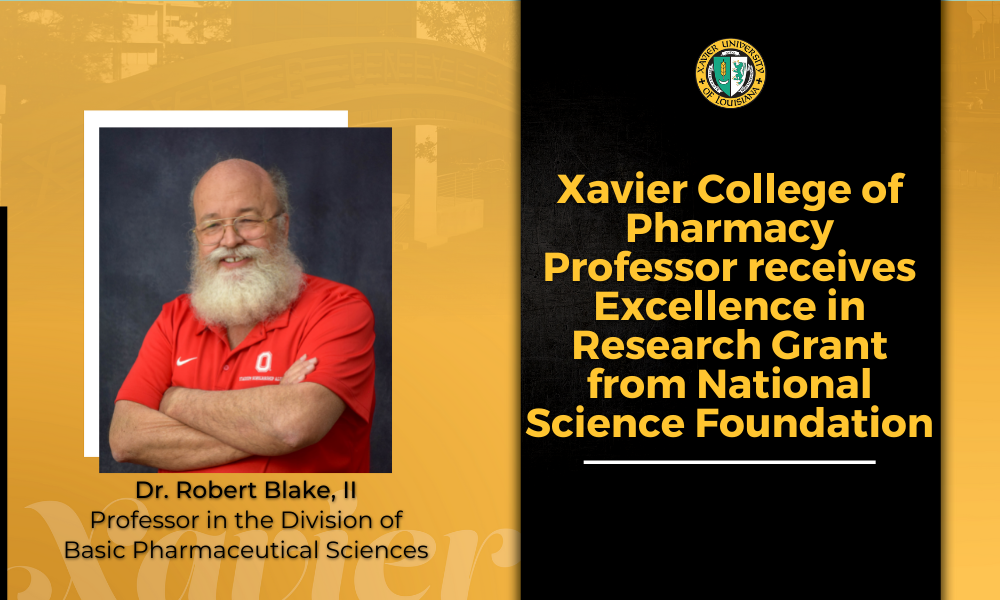
Dr. Robert Blake II, a professor in the Department of Basic Pharmaceutical Sciences at Xavier University of Louisiana, was recently awarded an Excellence in Research grant by the National Science Foundation (NSF) for his project “Spectroelectrochemical Measurements on Intact Microorganisms Under Oxic and Anoxic Conditions.”
Dr. Blake’s project seeks to develop and use a new method, called spectroelectrochemistry to measure the exchange of electrons at liquid/solid or liquid/liquid interfaces using intact microorganisms under physiological solution conditions. For this project, Dr. Blake says that the electrochemistry technique that will be used is an exchange of electrons for electrodes.
According to Dr. Blake, researchers have been using electrochemistry on purified and soluble solutions for years and using color changes to study reactions. His process, however, involves a specific combination of electrochemistry aided by an instrument that allows him to accurately measure colored elements in cloudy solutions. In other words, he studies the color-change measurements on whole cells while they are exchanging electrodes without the need to “tear the cell apart” and purify specific components. This allows him the unique opportunity to observe accurate colorized cell changes in situ, or in their natural state.
“All I really want to do is play with pretty color changes, and I get paid to do that,” Dr. Blake joked.
Joking aside, Dr. Blake’s investigation into a fundamental science could potentially lead to further discovery and innovation using similar techniques in other applications.
Although Dr. Blake’s project will focus on those microorganisms that exchange electrons with solid minerals within an ore body, it is anticipated that the same experimental method could be adapted to study any oxidation/reduction reaction at any liquid/solid or liquid/immiscible liquid interface. The fundamental knowledge thus acquired regarding the mechanisms of reactivity at such interfaces could then be used to improve purposeful efforts in biomining, biofuel production, bioremediation, and many other potential applications.
Dr. Blake will receive $449,348 for the project through the grant. The project officially began on September 1 and will be funded for three years. At least two undergraduate students will be involved as researchers directly through the project in each of the three years. Other students participating in other infrastructure grants will also be eligible to participate.
Through the grant, Dr. Blake’s project is jointly funded by the Historically Black Colleges and Universities - Excellence in Research Program (EiR) and the Directorate of Biological Sciences. This award reflects NSF's statutory mission and has been deemed worthy of support through evaluation using the Foundation's intellectual merit and broader impacts review criteria.
Dr. Blake’s proposal was selected from a substantial amount of applicants. On average, only one in three life sciences projects is funded, but Dr. Blake wants students and young researchers to know that they need to persevere.
“If you really want to do research, you have to commit to writing more than one [proposal]. If you write one and get rejected, don’t fold up your tent and go home. You just try again,” said Dr. Blake.